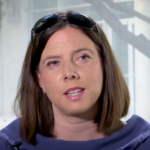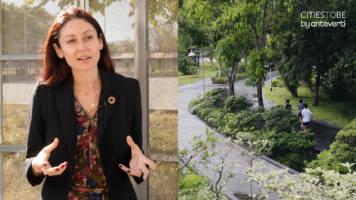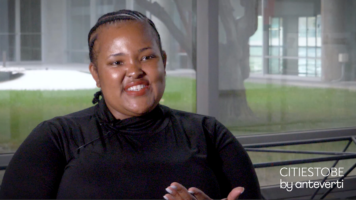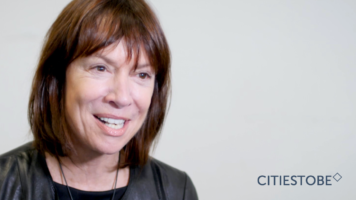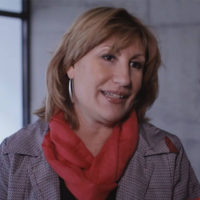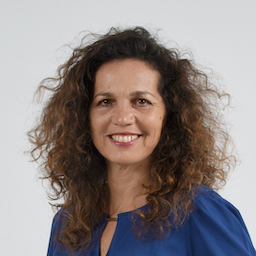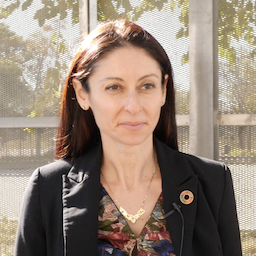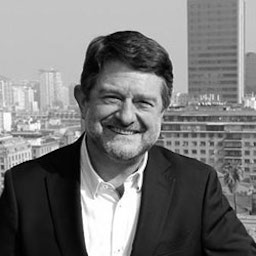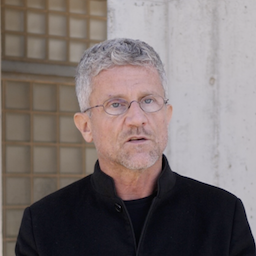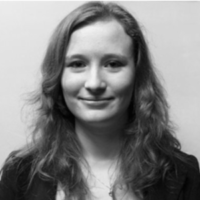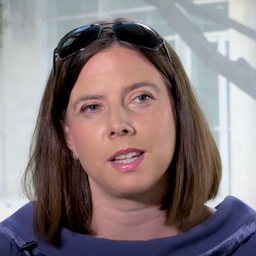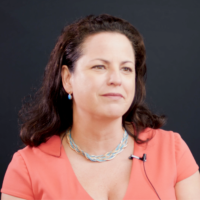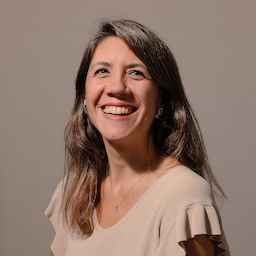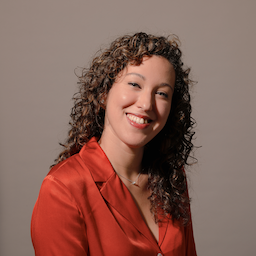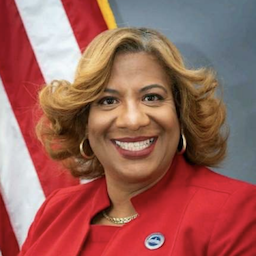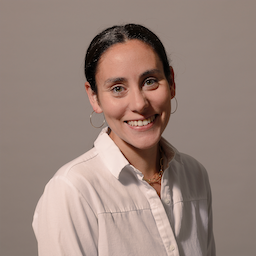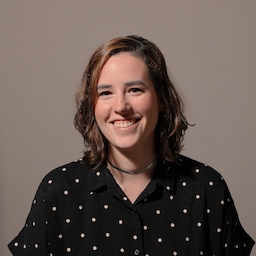Susan HayesCulleton: «Teenagers will be longer on the planet than those who tell them what they should think»
By | 2024
Susan Hayes Culleton, Economist and Managing Director of the Hayes Culleton Group, emphasizes the pivotal role that curiosity, collaboration, and excitement play in shaping the future of cities. These qualities are embodied by a specific age group she works with through the initiative she founded, Savvy Teen Academy — teenagers. Leveraging her multifaceted background, our conversation with her (both in video and text) delves into the significant potential that arises when teenagers are more effectively and promptly involved in the professional and economic worlds, contributing to the collective construction of our cities and societies, and, ultimately, shaping our shared future.

— What would you like cities to be?
I want cities to be curious, collaborative and excited for the future.
— And, talking about the future and your area of expertise: from an economic and financial perspective, what challenges are cities facing today?
Number one is sustainability, and I don’t just think that from a green perspective. I think that it’s right across the ESG perspective — environmental, social, and governance. How do we make cities more diverse and inclusive but also where people want to spend their time, to bring up their kids, to see their futures in, as well as how they’re governed?
The second key issue is an economic one, namely inflation, but I think it’s the knock-on effects of that. It’s how cities are funding projects and then finding that maybe they’re over budget or they can’t find suppliers within their supply chain that are both sustainable and economic. And then also the other thing is the impact that it’s having on businesses. Businesses are really struggling with the cost of energy, with some labor shortages or dislocations, so that’s also a follow-on impact.
And I suppose the third one then, of course, is inflation in house prices, which also makes affordability out of reach whether you’re renting or whether you’re buying. So the second issue, I believe, is not just inflation itself but the knock-on effects.
The third one is competing priorities, and I think we’ll always have that one. We’ve always had it in the past; it’s likely we’ll always have it in the future, and in one way, it’s a healthy thing—the fact that there are competing priorities. But when you have maybe political will that is in contravention to maybe social situations with environmental constraints as well as economic realities, that can be tough. But that really is the opportunity for people who are very passionate and competent at the top to really lead the way for the future.

— How to involve teenagers in shaping the society of tomorrow??
First, start with them, with teenagers. They want to be part of conversations around global issues. They’re very passionate about the environment, very cognizant of what’s going on politically, and can be very tolerant. They want and demand social inclusion; they understand different forms of disability. So, number one, I think, let’s start off by understanding that a younger demographic has as much to say as anybody else, and at any given stage, they’re going to be statistically longer on the planet than those people who are telling them what they should be thinking.
Secondly, talk to teenagers where they’re at. They’re interested in engaging with influencers, using Instagram stories, and many of them are active on Twitter. They talk to each other across Snapchat. They want the adults in the room to take responsibility and to listen to their voice. They’re very visual; they like infographics and want to see how the things they’re studying in school come to life, how decisions are made, and how they can be a part of that.
So, I would say, simply take the time to listen to them, speak to them in a language that they understand tied into what’s relevant for them, and then engage with them in their communication channels where they’re most comfortable with.
— How does aiding teenagers in understanding the business world impact urban futures?
In Savvy Teens, we work with thousands of teenagers every year, where we help them focus on careers, communication, and confidence through getting work experience in real companies. The impact of that on cities is, number one, it really helps them to understand natural career development more. More and more, we’re hearing now from people who want to go on to work in UX design or in the Internet of Things or the metaverse or creativity or aviation finance. These are all quite new careers in terms of parlance and how we talk about them. So, by showcasing what the world of work is really like to teenagers, you can really influence their career development and the choices that they make along the way.

But the second thing, and I think this is very important, is that teenagers then get to understand what a company is all about. It’s not just about profit; it’s about people, it’s about the planet, and it’s about profit. It’s showing teenagers that companies do a lot of work when it comes to corporate social responsibility, how they have to look into their supply chain for environmentalism, how they are offering a continually reshaped workplace for the talent of tomorrow. And, of course, the third thing as well is that we can see how companies look outwards. So, whether it’s through exports, maybe potential global mobility opportunities within their company, how they collaborate at conferences like this to think about opportunities around the world. I think that can really inspire teenagers to think, ‘Well, I could be part of a global conversation, or I could be working with the team in London, or in Abu Dhabi, or in Melbourne, or in Texas.’ So, for all of those reasons, showing teenagers a taste of what is possible inspires them to reach towards that, giving them an understanding about the role and responsibility of being part of that future too.
🙋♀️ «Teenagers will be longer on the planet than those who tell them what they should think» | #CitiesToBe interviews Economist @SusanHayes_ | by @Anteverti 👇🏽 Clic para tuitear— The urban world in 10 years: Which cities will gain weight in attracting economic opportunities?
So when I look at cities around the world gaining momentum, I see Belfast as a creativity hub. I see Austin, Texas, as a really fast-growing Silicon Valley of its own description. I see Abu Dhabi and Dubai having a great vision for their architecture. I see Chicago understanding how we can regenerate new design with new aesthetics. And, of course, we see lots of countries seeking to be more inclusive, whether that’s to do with pronouns or whether it’s dealing with disability spaces or having conversations about how things are moving forward.

So I think, in many ways, every city has a great opportunity to be better in 10 years’ time. I think it’s a competitive place out there for where to live, where to work, and they don’t have to be the same anymore.
The other thing that I think we need to consider is that the metaverse is a world in itself, digital nonetheless, but it’s still a world where people will be spending their time. And when you look at the supply chain into the metaverse, more and more companies are thinking more and more creatively about how to maybe sell real estate there or to develop your digital twin, etc. I think we need to think of it in tandem.
Of course, when I look at where cities are and who I think might have the most economic development or attract the most people or investment, etc., I think it’s the ones who are creative, the ones who are listening to what their citizens need, the ones who are really thinking about sustainability, the ones who look at life as work-life balance, whether that’s through family, travel experiences, food, etc. And also, of course, the one that is willing to be open and be collaborative and look at best practices around the world and be excited about what can happen.
Interview, text and edition by Sergio García i Rodríguez,
Head of Communication at Anteverti & CitiesToBe Executive Editor, and Tatiane Martins, Senior Consultant at Anteverti.
Video by Eloy Calvo
Looking for more?
About the authors
Susan HayesCulleton, CFA, “The Positive Economist” is managing director of the Hayes Culleton Group, with clients across Europe and the USA. The businesses include Active Peers AI which unlocks, diffuses and records strategic tacit knowledge within networks and #SavvyTeenAcademy which manages the entire experience of teenage work experiences in corporate organisations.
The company also provides training, speaking and content development services, in the subject areas of the financial markets, economics and entrepreneurship. Susan has published “Money Matters”, a textbook sponsored by CFA Society Ireland, to go into every secondary school in Ireland to promote and democractise financial literacy right across the country. She has twice co-authored “Positive Economics”, the market-leading Leaving Cert economics textbook in Ireland, and she is the author of two books published by Penguin, The “Savvy Woman’s Guide to Financial Freedom” and “The Savvy Guide to Making More Money”.
Susan is co-founder of The Positive Economist, Associate Lecturer at Ulster University, host of Fantastic Female Fridays and the ESG & Tech Show as well as presenter of the Savvy Women Online podcast. She serves on the boards of the Irish International Business Network and the Ireland Hong Kong Business Forum. Susan holds a Chartered Financial Analyst charter, MSc Executive Leadership, BSc Financial Maths and Economics and a Diploma in Taxation.

